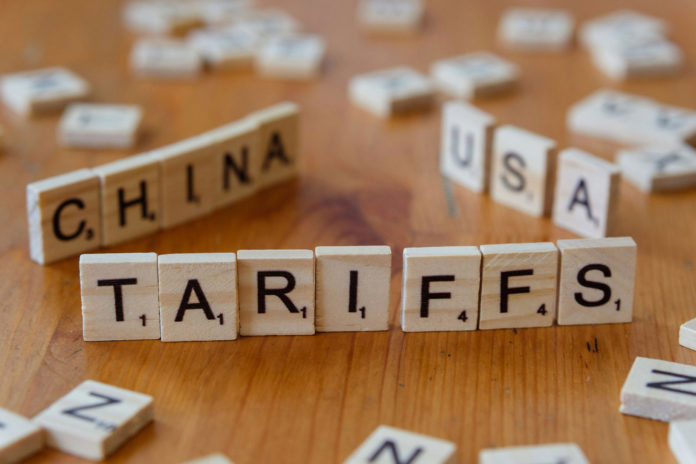“[F]or a nation to try to tax itself into prosperity is like a man standing in a bucket and trying to lift himself up by the handle.” —Winston S. Churchill
Trump imposed tariffs that Yale’s Budget Lab averages at 18.3%—way higher than 2% under Biden. Even the possible $575 billion revenue increase estimated by the Tax Foundation won’t cover budget deficits from the “Big Beautiful Bill.” Damn the numbers, Trump says, especially from the Labor Department. With no returns guaranteed, I generally recommend long-term hedging strategies, but stock and ETF jockeys may seek potential profits:
Economic Principles
Treating America like a business, Trump tries to tax foreign suppliers to the point where they lose delight and might not be willing to sell their goods at all. Trump hopes emerging American businesses will make goods that complement each other, and he most fears China’s dominance in rare earths and Taiwan’s chips because they are complements to domestic production that have few substitutes. Invest in these foreign products if tariffs relent.
Seeking profits: “Complements and substitutes help us do that.” Substitute goods replace other goods to satisfy similar needs. When one good’s prices increase, demand for substitutes naturally increases. Complementary goods are goods consumed along with other goods like cars and tires. If the price of cars rises under Trump tariffs—obnoxious complements—the price of domestic tires may actually decrease when overall demand decreases. So don’t invest in tires for European Maseratis facing tariffs.
Investing with Tariffs
As bargaining strategy, Trump threatened outrageous tariffs to gain wearied acceptance of significantly higher tariffs. Uncompetitive countries may lose willingness to sell, but gains come from more efficient countries that sell substitutes to countries other than America. Columbia can sell coffee to France and Canada, our biggest trading partner, who is already seeking better export buyers for its goods than America, more domestic consumption and retaliatory tariffs. Invest in Canada only to anticipate recovery.
AI needs energy to drive market gains. With Microsoft reviving Three Mile Island, now’s a good time to buy dirty energy (e.g. nuclear, oil), substitutes for green energy. Or buy American companies like Joby with domestic production. Trump brings subsidies to U.S. car buyers, ship builders and baby makers. Subsidies lower costs and producer surplus is possible at lower prices. Invest in American autos, complementary American steel and electronics, toys, private schools, etc. Three pharmaceutical companies promised multi-billion-dollar investments in American plants. If only we could grow our own coffee?
Profiting from Trump’s Social Policies
Both illegal immigrant labor and cheaper foreign goods have substitutes that sometimes work and these include American labor or American technology. Trump’s followers may be disenchanted when they see that robots, AI and other technology are the most natural substitutes, especially in manufacturing. This will drive labor to less easily replaceable jobs (economic complements) in medicine, home care, education, building trades and technology repairs. Mass deportations may disrupt supply chains and industries most effected—agriculture, construction and hospitality—need local American labor. Skilled labor earns less without helpers.
Clearly Medicare and SNAP cutbacks are designed to reduce payments to the needy. If recipients face unwanted complements of time in charity, education or work for eligibility, demand for welfare will decrease. Likewise, if Trump defunds Planned Parenthood, consider investing in substitute basic healthcare providers that avoid abortions.
“In the long run, we are all dead.” —J.M. Keynes
Trump will either outflank or replace Powell to lower interest, and rates just fell slightly anticipating Fed reductions. Investors may join the buying fest of houses and market REITs. Home construction will increase but so will complements like mortgages, insurance, household goods and pets; so you should buy them before likely inflation forces somebody’s FED to raise rates again.
Income tax cuts ultimately encourage earnings by individuals and companies and Trump has reduced taxes on both. Selective opportunities do exist for further increases and I am bullish. Who says you can’t make quick bucks in a tariff-distorted economy disfigured later by soaring deficits and inflation? But investors must prepare for the day when tariffs cease and all countries turn back to the production they do with comparative advantages.
Robert Arne, EA, CFP, MS, MLO of Carpe Diem Financial Life Planning, gives holistic financial advice as his client’s fee-only fiduciary. He serves mostly Santa Cruz Mountain dwellers. These articles must not be read as personal financial, mortgage, tax or investment advice; consult appropriate professionals. Learn more at www.carpediem.financial.













